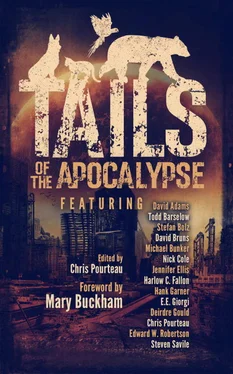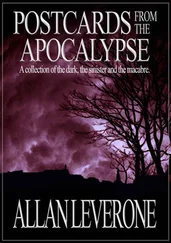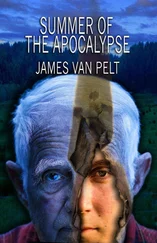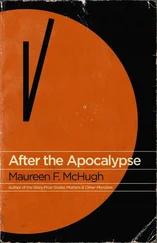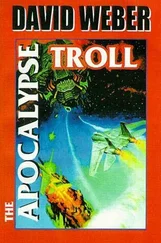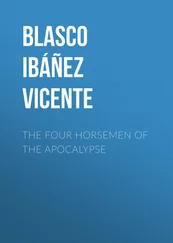The mice used to come in these small, white cardboard boxes with air holes. They were shaped roughly like a happy meal box. The similarity was not lost on me. There aren’t many animals more vulnerable than pet store denizens. Especially exotic ones, like Surly Shirley in the story. Without international shipping of food and medicine, most exotic pets would die pretty quickly. And while instinct can take an animal a long way, for an exotic pet far from its natural habitat and peers—a pet that was born in captivity—the odds of survival are pretty slim. I wanted my underparrot to win. I wanted a very vulnerable character to not only be able to survive the immediate chaos of an apocalyptic event but to become heroic in some way.
But even superparrots need sidekicks. Surly Shirley starts out as a bird I wouldn’t like. She’s mean, she’s jaded, and she’d rather bite than make friends. She’s someone I probably wouldn’t want around. Just like Joe, who starts this story as maybe a coward and definitely a thug. He goes with the flow, even around bad people like Gray, because it’s easier to do so. He’s willing to hurt people, just like Surly.
But when the chips are down, both realize they won’t be able to live with themselves if they don’t try to do the right thing. Without each other, they’d never have transformed into the heroic characters they become. So, what happens to them both? Does Joe recover? That I can answer since it’s already written in Krisis , the third book in my After the Cure series. He does recover, mostly, until he meets Gray again and must decide whether to save himself or the women in the greenhouse that rescued him. And Surly Shirley? Does Joe ever see her again? There aren’t many vets in the post-apocalypse. I hope she wakes up to a warm greenhouse and all the citrus she can eat, but she’ll probably never fly again. But that’s okay. Not every superhero flies. And sometimes they can be cranky and prone to bite.
If you’d like to read more about Joe, pick up Krisis . And if you’d like to read more about Surly Shirley, tell me so! Connect with me on Facebook: https://www.facebook.com/Afterthecurenovel.
Kael Takes Wing
(a Mayake Chronicles short story)
by E.E. Giorgi
They came every spring. Condors. They circled the sky and waited. Silently, stubbornly. They knew if they waited long enough, their reward would come; their hunger would be satisfied.
All they had to do was wait. Eagles hunted. Brown falcons hunted. Even humans hunted. But not the condors. They fed on death. And all other birds hated them for that.
Everyone but me.
To my young eyes, they were immense and majestic. They owned the sky. When the condors came, I poked my head from the nest and stared, fascinated. Their wingspan seemed as wide as the sky itself, their glide seamless, their flight as steady as the breeze. I was mesmerized. The feathers of their wingtips looked like fingers, spread out to embrace the currents of the air.
“Don’t look at them,” Mother would say, pushing me back inside the nest. Like everyone else, Mother hated the condors. She said the only reason they thrived was because of the Plague. The disease had wiped out most of the creatures on the planet. Humans, mammals, even fish. And yet the condors banqueted on the death and never got sick.
“Don’t look at them and don’t ever leave the nest,” Mother would say every time she left to hunt. “No chick has ever survived falling from its nest.”
* * *
I never met Father. It’d always been just the two of us, Mother and I, since the day I’d hatched. Mother must have been very self-conscious about this, because while all other falcons nested in trees, she’d built our home in a crevice among the cliffs overlooking the forest. She’d propped branches and twigs against the entrance to hide our nest from predators.
It was a gorgeous spot. The ledge around the crevice overlooked the river and the forest all the way to the waterfalls. When Mother came back from hunting at the crack of dawn, the sky was pink and crimson, and the water looked like a golden braid braced by trees.
The condors came after that, after the sun was already up. Mother would watch them warily from the ledge. The other falcon couples took turns guarding their nests, but being alone, Mother didn’t have that luxury. Maybe that’s why she never brought back a lot of food. Moths, crickets. Sometimes a small mouse. She regurgitated everything and watched over me while I ate. I never noticed she was getting thinner until much later, when I thought back on those mornings together. All feathers and no meat, as we birds say. That was Mother.
I should’ve known then. I should’ve known there was going to be a dawn when Mother wouldn’t return. The sun rose. The jays screeched. The condors circled in the sky, their black silhouettes racing over the profile of the mountains.
Clouds rolled. Humans came fishing, their loud calls echoing against the cliffs. By then I was hungry… really hungry. A lizard basked in the sun nearby and then slinked away. My stomach gurgled as I watched it go.
I raised my eyes and looked at the condors. I longed to fly with them, to soar on conquered winds. I stretched my wings and noticed how pathetic they looked. By now, the other fledglings in the tree nests had grown feathers and shed their down. I, instead, only had a hint of vaned feathers. The rest of my body was still covered in gray, stringy down. How I wished I had the beautiful, flawless wings the condors had, their fingered feathers so elegantly scraping the sky.
As I waited on Mother to return, that day seemed never ending. Sunset came at last, followed by twilight. My nest grew cold. Stars dappled the sky. A sliver of moon came out from behind the clouds, and in its milky light, the branches that Mother had placed to hide us drew long shadows across the crevice where our nest rested.
When I awoke the next morning, Mother had still not returned. I felt lonely.
Lonely and hungry.
I believe what kept me alive in that time, waiting for Mother to come home, were the condors—those same condors that were likely waiting for my death. And yet, every time I watched them soar high in the sky, I felt alive again, despite my growing hunger. I knew I belonged up there, that one day I too would conquer the skies.
At last, more than the drive to be with them, hunger made me force my fears aside. I needed to find food. I climbed out of the nest, squeezed through the branches, and crawled onto the ledge.
Oh, the excitement! It flowed through me as the wind from the ridge rustled my down. This is what it feels like , I remember thinking, the rush of the cool air under my wings. What it feels like to fly!
I stretched my wings. Fluffs of down fluttered in the air, reminding me how pathetic I was. Pathetic, weak, and hungry. I looked over to the right and spotted the lizard again, lounging in the morning sun. The sight made my stomach rumble.
Lizards are slow in the morning, I thought, steadying myself on the ledge. Easy pickings.
So I scooched closer. Slowly. And closer still. And just before I leaned forward to snag it, a full-grown falcon fledgling swooped down and snatched the lizard from under my beak, knocking me off my feet and over the ledge.
I’d imagined flying as the most rewarding experience of all. To stretch your wings and be free, weightless, liberated. And yet here I was, spinning in a free fall that seemed never to end, my useless wings a dead weight carrying me ever faster to the ground below.
I hit one tree branch, then another, and a third, until I reached the ground with a soft thud. The world around me turned black. As I passed out, I remembered what Mother had said.
Читать дальше
